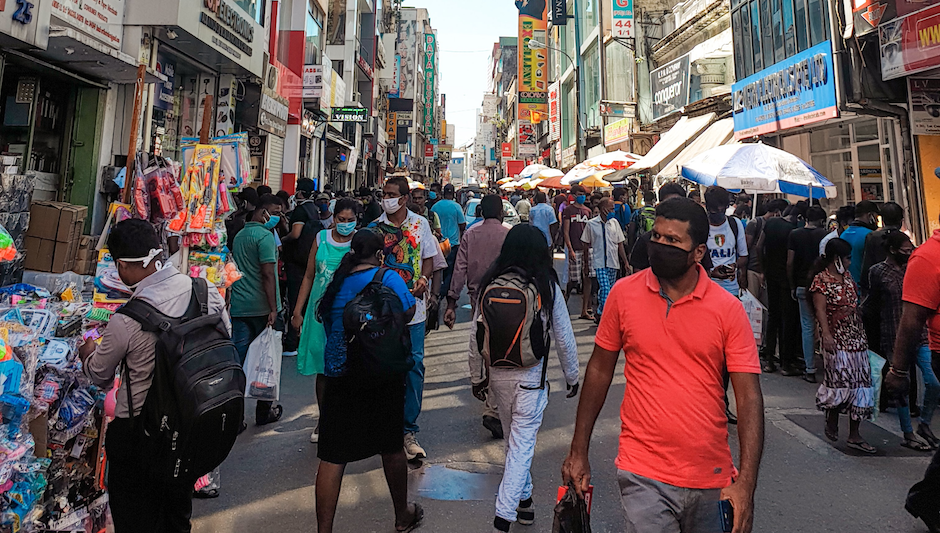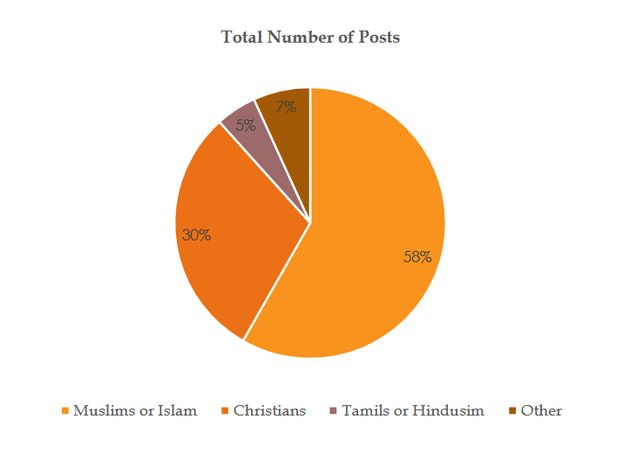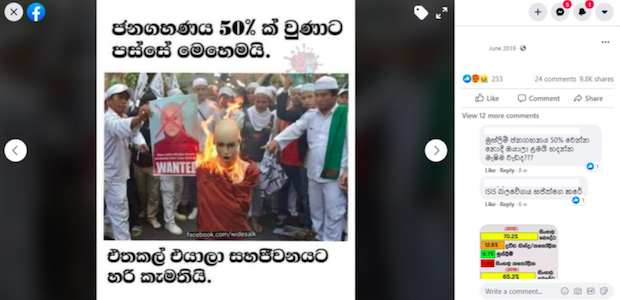“Sri Lanka has seen a significant escalation in ethno-religious tensions”
The National Christian Evangelical Alliance of Sri Lanka publishes a report analysing messages in social media against religious minorities.
COLOMBO · 21 DECEMBER 2020 · 17:05 CET

The National Christian Evangelical Alliance of Sri Lanka (NCEASL) has published a report which documents up to 103 hate speech in messages posted on social media against religious minorities between March and June of this year.
‘The Hate speech in Sri Lanka during the pandemic’ report was carried out in the framework of the 'Minority Matters' initiative, and it analyses “those publications in social media, blogs, media and other websites, which demonise the religious other”.
“While the pandemic had an impact on how the content of hate speech was employed during this period and how online spaces were used against religious minorities , the content also indicated a continuation of the types of posts and comments that were used previously”, the NCEASL pointed out.
According to the evangelical entity, “Sri Lanka has seen a significant escalation in ethno-religious tensions over the past 10 years. Religious violence is not new to Sri Lanka, but the frequency and intensity of the violence in recent years is a new phenomenon”.
Muslims and Christians, the most attacked
“The number of incidents of hate crimes, including religiously motivated violence, and hate speech against religious minorities have grown, with Muslims and Evangelical Christians being at the receiving end of most of these incidents of violence and hate speech”, it added.
Of the 103 posts surveyed, “58% attacked Muslims or Islam on a variety of grounds”, while Christians of different denominations “are the second most attacked group, with 30% of the messages”, the report says.
“Anti-Muslim hate speech increased after the end of the war in 2009 and escalated after the 2019 Easter Sunday bombings. Apart from mosques and private property, Muslim businesses and symbols of economic prosperity have also been targeted”, the NCEASL explained.
Evangelical Christians “have also been targeted over the years. This has included physical attacks, attacks on places of worship, interruption of religious services and obstruction of religious rites, including burial ceremonies”.
“Although hate speech on social media has been rampant and has flourished in the context of this impunity, there have been no documented prosecutions even though the Sri Lankan law does make hate speech an offence”, the NCEASL denounced.

The case of a Swiss pastor
The report breaks down the hate messages into the two official languages of Sri Lanka. Of the Sinhala language posts surveyed, 79% are against Muslims. Most of the posts written in Tamil (46%) attacked Christians of Tamil ethnicity.
The NCEASL reported the case of a Swiss Pastor of Tamil identity who visited Sri Lanka in March and conducted religious services. On returning to Switzerland he tested positive for COVID-19 and his contacts in Sri Lanka were isolated and tested for the virus.
“The incident generated several posts and comments attacking the pastor and followers of his evangelical denomination which were shared widely. Of the posts surveyed in Tamil, 17 of the 50 posts attacked the pastor, one even referred to the Swiss pastor and members of his church as germs that need to be eradicated”, the report points out.

Recommendations to fight impunity
According to the NCEASL, “one of the problems in Sri Lanka has been impunity. It was a problem during the 26-year civil war where there were very few prosecutions of human rights violations. It continues to be a problem after the end of the war and the emergence of a volatile ethno-religious environment”.
That is why the evangelical entity finishes the report giving “several recommendations to state institutions, social media platforms, mainstream media, and civil society”.
The NCEASL calls on the administration “to ensure that the rule of law is applied [...] and that the law enforcement officers and the Attorney-General office act independently and impartially”. Their actions had already been questioned in another publication in August this year.
The entity also asks social media platforms to track and monitor rights violations and calls on national media “to reflect Sri Lanka religious, ethnic and social diversity adequately and not to spread hate speech against religious minorities”.
Furthermore, it encourages civil society “to engage with state actors, including the police, Ministry of Justice, and the Attorney-General office on investigating and prosecuting, both hate speech and religiously motivated violence”.
You can read the full report here.
Published in: Evangelical Focus - world - “Sri Lanka has seen a significant escalation in ethno-religious tensions”
